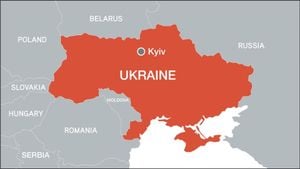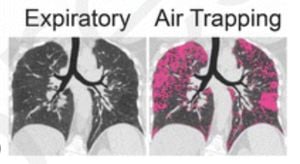MANAUS (AM) – The scrutiny of the Judiciary branch of Amazonas has intensified, with significant developments surrounding two judges as revelations of misconduct emerge. On February 24, 2025, the National Justice Council (CNJ) temporarily suspended Judge Rosália Guimarães Sarmento of the Amazonas Court of Justice (TJAM) for 60 days. The reason? Her controversial posts on social media, where she showed support for President Luiz Inácio Lula da Silva during the 2022 electoral campaign, reportedly undermined the impartiality expected from her position.
According to reports from CENARIUM, the majority of the CNJ saw fit to reprimand Sarmento for disseminative behavior inconsistent with judicial dignity. Screenshots revealed Sarmento urging her followers to vote for Lula, identifying threats to Brazil's democratic framework under previous administrations.
“I have been a judge for 18 years. The scenes of Roberto Jefferson shooting at the police and bragging about it indicate the risk to our democratic state! Vote on the 30th: number 13. Save Brazil!” wrote Sarmento on X, formerly known as Twitter. The disciplinary administrative process opened against her on September 2023 after the CNJ’s oversight of her social media revealed more than 70 posts compromising her judicial duties.
The Corregedor Nacional de Justiça, Minister Luis Felipe Salomão, noted Sarmento “adopted behavior on her social networks inconsistent with her duties as magistrate.” Such posts crossed the line of acceptable freedom of expression, as she criticized former President Jair Bolsonaro, stating, “Bolsonaro hates the poor” and calling him a “dictator.”
The investigation to suspend her online presence began during 2022, alongside similar actions against other judges, aiming to prevent public expression of political preferences by members of the judiciary. The CNJ previously ordered the suspension of the accounts of other officials, ruling them as detrimental to judicial impartiality.
Simultaneously, on February 24, recent police operations highlighted more troubling allegations against judicial figures within Amazonas. Federal Police and the CNJ executed search and seizure orders at the offices of Judge Jean Pimentel and Justice Elci Simões, investigating allegations of fraud linked to Eletrobras worth nearly R$ 150 million.
This operation followed the CNJ's precautionary suspension of Pimentel and Simões, who face scrutiny over rapid proceedings approving payments old claims against Eletrobras. During the operation, investigators seized documents and electronic devices for analysis to discern the depth of this corruption scandal.
Within this troubling scenario, the image of the Judiciary faces serious tarnishing. Minister Campbell Marques from the CNJ expressed, “The behavior of those involved severely damages the image of the Judiciary of Amazonas.” The expedited process concerning Eletrobras sparked alarms about possible collusion, as the associated documents indicated unusual speed and manner of judicial action, prompting the CNJ to investigate.
Jean Carlos Pimentel dos Santos defended his actions, indicating he acted following superior orders and critiquing Eletrobras for airing disputes publicly through the CNJ. Much like Sarmento, Pimentel is now embroiled amid claims of anomalies stemming from decisions made concerning payment obligations.
Investigators are focusing on Pimentel's approval of payments triggered by claims from Bruno Eduardo Thomé de Souza, whose request for such payments allegedly stemmed from documents issued decades earlier—specifically from the 1970s—raising immense concerns over legitimacy and permission.
Despite the additional layer of complexity, with claims of funds already being retrieved, the CNJ’s scrutiny remains firm, insisting on accountability and transparency from all actors involved. The controversies encapsulating Sarmento, Pimentel, and Simões underline the pressing need for integrity within judicial ranks amid rising public concern about accountability.
The CNJ emphasized the importance of granting the involved judges the opportunity to present their defenses before any final determinations are made – ideally within five days. This process not only reflects the perseverance of the judiciary to maintain standards but also the urgent call for reform witnessed throughout current judicial governance.
Reflecting on these circumstances, the judicial system's collective integrity hangs precariously as the lawmakers, government officials, and judges navigate this tumultuous period, highlighting the ever-more pressing dialogue around ethics and responsibility within the judiciary of Amazonas.
With such scandals uncovered, citizens and representatives alike are left contemplating the repercussions for the integrity of judicial decision-making processes and the broader legal framework moving forward.



